Just 2 days back IRENA’s (International Renewable Energy Agency) 7th Assembly concluded in Abu Dhabi. During this Assembly United Nations President of General Assembly, Peter Thomson addressed in the press conference that 90% of humanity is not aware of the UN’s ambitious SDGs adopted by 193 nations for sustainable development.
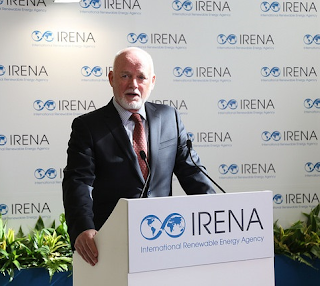 |
| Peter Thomson, UN |
So I am bringing exclusively for my readers simplified information on how countries act on Climate Change.
United Nations has set Sustainable Development Goals (SDGs) in the 2030 Agenda for Sustainable Development. UN says ‘this Agenda is a plan of action for people, planet, and prosperity’. So what are these SDGs? Just have a look at this chart below.
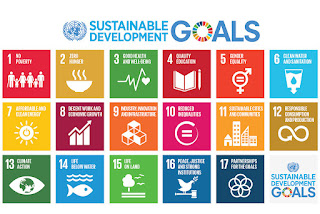 |
| United Nation’s SDGs from Agenda 2030 |
These 17 SDGs are further broken into 169 targets. Being a citizen of this planet, we all need to know these SDGs. When we talk about Green Consumerism, individuals choosing wisely it goes back to UN’s sustainable development targets and these SDGs because these SDGs are related to Production and Consumption. Many people think, ‘how it is related to me?’ Or ‘It’s the job of government, not me’. But basically, it’s our responsibility to say no to unsustainable consumption and increase the demand for sustainable products and services. Not just governing bodies and organizations but all of us have a role in achieving these SDGs and taking our society towards sustainable development.
If you are keen to learn the necessary steps involved in SDG reporting of a business, access our 30-min short course, SDG Reporting Simplified. This course is designed to provide an introduction, pathway, and step-by-step guidelines about SDG Reporting for executives, any industry professionals, sustainability practitioners, graduate, and advanced graduate students, or anyone who wants to understand how to achieve sustainable development goals in the business context.
During the Paris climate conference (COP21) in December 2015, 195 countries adopted the first-ever universal, legally binding global climate deal called Paris Agreement, the first-ever global climate change agreement between world nations. As of Dec 2016, 194 UNFCCC members (countries) have signed the treaty.
The agreement sets out a global action plan to put the world on track to avoid dangerous climate change by limiting global warming to well below 2°C.
Before and during the Paris conference, countries submitted comprehensive national climate action plans (NDCs). These are not yet enough to keep global warming below 2°C, but the agreement traces the way to achieving this target. These NDCs align with at least 154 out of 169 SDG targets. World Resource Institute clarifies, ‘A wide range of actions that countries put forward in their INDCs – both for mitigation and adaptation – provide enormous potential for mutually supportive implementation with the SDGs.’
Assembly president, Mario Giro, Deputy-Minister of Foreign Affairs and International Cooperation of Italy discussed the role of renewables in reducing migration pressure and improving the lives of displaced people.
Germany discussed optimizations of tools and the development of new energy storage technology. While Brazil mentioned they like renewables because their short construction time is a hedge against economic uncertainty. Indonesia stated engaging the private sector is a must for countries to achieve their renewable energy targets. Korean government mentioned that they are encouraging private commercial banks to provide loans to energy storage facilities. UAE’s Minister of Climate Change and Environment H.E. Dr. Thani Al Zeyoudi stated “UAE’s committed to the acceleration of renewable energy. we have raised our clean energy target from 24% to 27% by 2021. UAE will decrease carbon emissions by 70% by 2050.” Director-General of IRENA, Adnan Amin stated socio-economic benefits and increase of energy jobs are important factors of renewable energy sectors. Read IRENA’s Renewable Energy Jobs report in 2016 here.
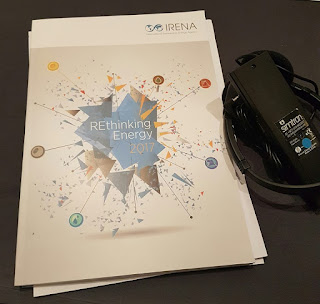 |
| REthinking Energy 2017 |
Plummeting costs and rapid innovation have spurred investments, transforming renewable energy from a niche to an economically and technically preferred solution.
Renewable energy investment in power beat fossil fuels for the 3rd year in a row and developing countries are accounting for the first time for more than half of investment in renewable energy.
REthinking energy 2017 highlights the need for using renewable energy for heating and cooling in buildings and industry, and for transportation. Another interesting point this publication makes is, 7th SDGs, which is ‘affordable and clean energy’ can support all other SDGs can lead us to achieve sustainable development.
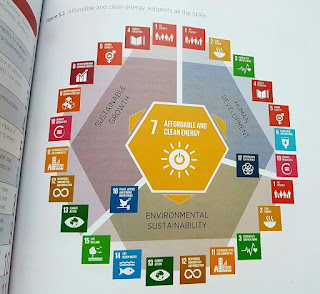 |
| Renewable Energy supporting all SDGs |
# 40% of fortune 500 companies have set sustainable energy targets.
IRENA assembly marked the opening of Abu Dhabi Sustainability Week 2017, follow me on Twitter to get updates on Abu Dhabi Sustainability Week! And join our tribe here.
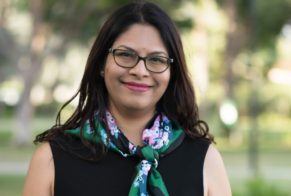
Amruta Kshemkalyani, an expert sustainability professional turned social entrepreneur, is the founder of the Sustainability Tribe, AK Sustainability
Read More >>
Copyright 2025 © Sustainability Tribe, Registered under 'Sustainability Tribe Marketing Management' in the U.A.E., Design by LBM INFOTECH